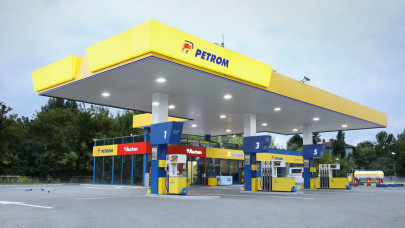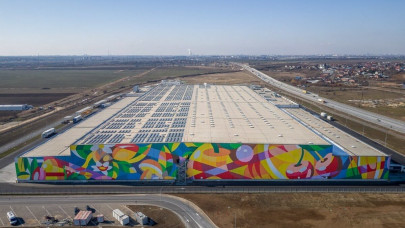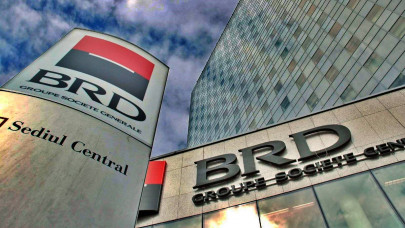This interview was first published in Property Forum's annual listing of "The 50 most influential people on Romania's real estate market”.
How has CMS's real estate and construction client portfolio evolved during 2023 and what are your goals for 2024?
2023 was the best year for CMS Bucharest's real estate practice, ending with two of the largest retail transactions not only in Romania, but also in the region.
So, for us the previous year can be called “the year of retail”, marked by the entry of the M Core Group to the Romanian market, through L&C Properties' acquisition of 25 retail parks with a total area of over 132,000 sqm, in 24 cities, worth almost €219 million.
We also worked on the transaction signed with Ahold Delhaize (Mega Image) regarding the acquisition, worth about €1.3 billion, of a network of over 1,650 Profi stores in Romania. In addition to this, we continue to work for the large fashion retailer Primark on the opening of its first stores in Romania, in large shopping malls in Bucharest and around the country.
We started 2024 in the same dynamic way, moving ahead with projects initiated last year and continuing to enjoy the upward trend of interest in transactions in Romania, in both the retail and logistic sectors.
Our objective remains the same: to serve our existing clients at the highest standards of professionalism, always focusing on the practical components of legal issues that have become increasingly complex in recent years. And, of course, from our position as an international law firm with an impressive network of offices in over 40 countries, we have been helping to increase the interest of large investors in the Romanian market.
How much potential is there for attracting new investors in the M Core calibre real estate market?
M Core's entry into the Romanian market is, I would say, the best news of the year for the real estate market. It was a greatly anticipated and meticulously prepared entry. M Core's entry is an extremely positive signal, confirming the potential of the Romanian market, and will hopefully arouse the interest of other investors of the same calibre.
Such investors are constantly looking at Romania, but they need to understand how our market works, how much legislative and fiscal predictability there is here, and they need reliable consultants who know how to promote the country's strengths and responsibly answer all their questions.
It is a team effort to convince large investors to consider investing in our country, and we as lawyers in an international firm can credibly advocate for that.
What are the emerging real estate niches where Romania is attracting a growing number of investors?
A lot of investors who were traditionally active in the real estate market, and especially those who already owned project land purchased years ago, have turned to the renewable energy market, which is experiencing unprecedented growth in Romania.
The CMS team assisted countless clients in this sector in 2023 and, despite all the challenges caused by changes in legislation in city planning and construction that have created confusion among players from developers to consultants, this type of activity continues to keep us very busy.
The hotel industry has become increasingly active over the last year and, although historically the hotel sector was a separate sector from the real estate market itself (with different investors and approaches), we are seeing more and more synergies between the two sectors.
I anticipate more and more projects to convert existing office buildings that have not found the right mix of tenants and the emergence of mixed projects, with hotel, residential, retail and of course office components.
In addition, new hotel projects and their operation at international standards will move the market in the big cities in a favourable direction. The growth of the AI sector could also lead to an increase in investment in data centre development, as a natural evolution of the need to ensure robust data infrastructure. Also related to infrastructure investments, especially in the context of the existing PNRR funds, I expect to see the development of the urban mobility component.
This includes the construction by major players such as Ford or Tesla of networks of electric car charging stations in as many locations in the country as possible.
How competitive is the local real estate market from a tax perspective?
Strictly in terms of the level of local taxes, I consider the local market to still be attractive, as the amount of taxes has not changed. In most cases, it is only updated by inflation, according to the provisions of the Tax Code.
However, it is interesting to watch the impact of the new special tax on real estate, which was introduced this year, the target taxpayers being individuals who own residential buildings with a taxable value of more than 2.5 million lei.
In the residential market we can say that competitiveness has been affected in the short term by the reduced VAT rate changing from 5% to 9%. However, the level of taxation in Romania for real estate companies is competitive with other markets in the region and beyond; as proof, we still see high interest from foreign investors to enter or consolidate their position in the local market.
What are the challenges of implementing ESG criteria in real estate projects from the perspective of legal regulations?
In real estate projects, one of the criteria that can pose problems is the complexity of the value chain: it is difficult to analyse in depth the compliance of suppliers, clients, etc. with sustainability criteria, from the procurement of raw materials for real estate developments (traceability of materials) to the actual provision of services, as these are outside the direct control of the companies that develop and own real estate.
The process of collecting relevant information and measuring carbon impacts across the supply chain requires significant investment from shareholders, and many companies face a substantial challenge in finding the tools to make such a measurement and communicate it to the market. It is an ongoing process of market education and learning, but we are seeing progress, with an increasing number of companies already creating a framework for reporting on different segments, such as offices, a process which is also stimulated by the need for financing.
In addition, the publication of the Romanian Sustainability Code is an important step towards defining a possible unified framework for (non-financial) sustainability reporting.













